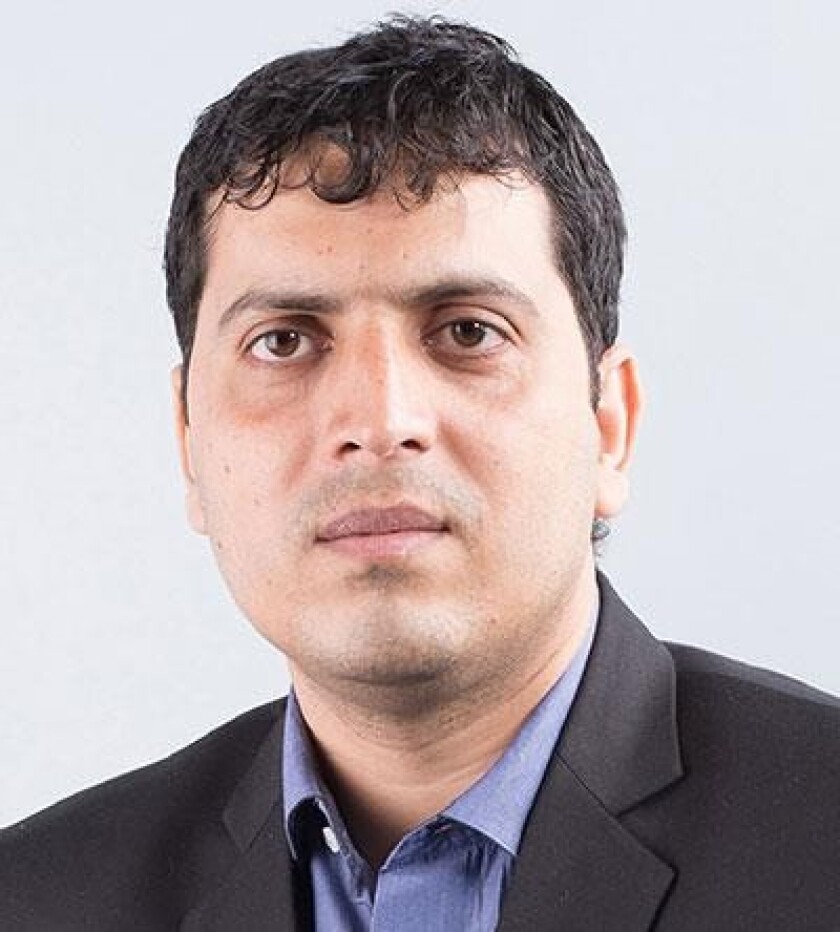Welcome to the latest instalment of Managing IP’s ‘Five minutes with’ series, where we learn more about IP practitioners on a personal as well as a professional level. This time we have Amit Aswal, managing partner at AnovIP in India
Someone asks you at a party what you do for a living. What do you say?
I’d tell them I help individuals and businesses safeguard their ideas and innovations. Through intellectual property protection like trademarks, patents, and designs. I help my clients turn their creativity and technology into valuable assets that fuel growth and protect them from copycats.
Talk us through a typical working day.
My day typically starts early with reviewing IP filings and ongoing cases to stay on top of deadlines. I’ll then have strategic discussions with clients or my team, often working on portfolio management or addressing new client needs.
The middle part of my day is dedicated to meetings – often with clients across different time zones. I usually end the day reviewing updates on cases, negotiating licensing agreements, or analysing new IP challenges that need innovative solutions.
What are you working on at the moment?
I’m working on a project for a global tech client looking to expand its IP portfolio across several jurisdictions. We’re strategising ways to secure its IP across different markets while also looking into potential licensing and monetisation opportunities. I’m also advising an academic institution on patenting innovative research, helping it navigate commercialisation paths that would benefit the institution.
Does one big piece of work usually take priority or are you juggling multiple things?
It’s definitely a juggling act. While some large projects may take centre stage, IP is an area with many moving parts, so multitasking is essential. I’m often managing several cases simultaneously, each at different stages – whether it’s filing patents, resolving disputes, or negotiating agreements. Prioritisation is key, as some matters, like infringement cases, may need immediate attention.
What is the most exciting aspect of your role and what is the most stressful?
The most exciting part of my work is seeing clients thrive and succeed due to the IP protection we’ve put in place — it’s fulfilling to know that our efforts have given them a competitive edge or paved the way for new opportunities.
The most stressful part, however, is when we face tight timelines or highly complex disputes, especially when the stakes are high for the client. The pressure to deliver results while navigating intricate legal landscapes can be intense.
Tell us the key characteristics that make a successful IP lawyer/practitioner.
A successful IP practitioner must be detail-orientated, as the smallest oversight can make a huge difference. They need strong analytical skills to understand both the legal and technical dimensions of a case. Communication is critical. Simplifying complex IP matters for clients is a huge part of what we do. Finally, perseverance and adaptability are vital; this field is constantly evolving, so staying current is essential.
What is the most common misconception about IP?
One major misconception is that IP protection is only for big companies. In reality, businesses of all sizes can benefit. Another is that securing a patent or trademark is the end of the journey. The truth is, maintaining and enforcing IP rights requires ongoing attention and strategic thinking. Many companies don’t realise the competitive edge that well-managed IP can provide until they experience it.
What or who inspires you?
I’m inspired by leaders who are not only technically adept but also have a vision for using IP to drive meaningful innovation – individuals who recognise the power of ideas and leverage IP to change industries and improve lives. It’s that impact and purpose-driven approach that keeps me motivated.
If you weren’t in IP, what would you be doing?
If I weren’t in IP, I’d likely be involved in technology development, perhaps as a software engineer or technology strategist. I’ve always had a passion for understanding how technology shapes our world, so working on the innovation side would be a natural fit.
Any advice you would give your younger self?
Stay curious and keep learning, because the legal and tech landscapes are constantly evolving. Also, don’t hesitate to take on challenges early in your career – they build resilience and shape your expertise.
Finally, focus on relationship-building; many opportunities in IP come through strong, trusted networks.
What is your motto in life?
Innovation is the currency of progress, and protection is the safeguard of value. This drives me to not only protect innovations but to help create strategic value for clients, ensuring their ideas contribute meaningfully to their growth and success.










